Discover effective techniques to manage and reduce stress with our comprehensive Stress Management resources. This page offers practical advice and strategies for navigating daily pressures and maintaining emotional balance. Learn how to implement relaxation practices, mindfulness exercises, and stress-reducing habits to improve your overall well-being. Embrace a calmer, more centered lifestyle and equip yourself with the tools to handle stress with confidence.

Breathing – A Life-Changing Therapy to Relief Stress
Discover the transformative power of breathwork in this comprehensive guide. Learn how simple breathing exercises can have a profound impact on your stress levels, mental clarity, and overall well-being. Explore the science behind respiration and its connection to the nervous system. Discover effective techniques like deep breathing, diaphragmatic breathing, and alternate nostril breathing, and how to incorporate them into your daily routine.
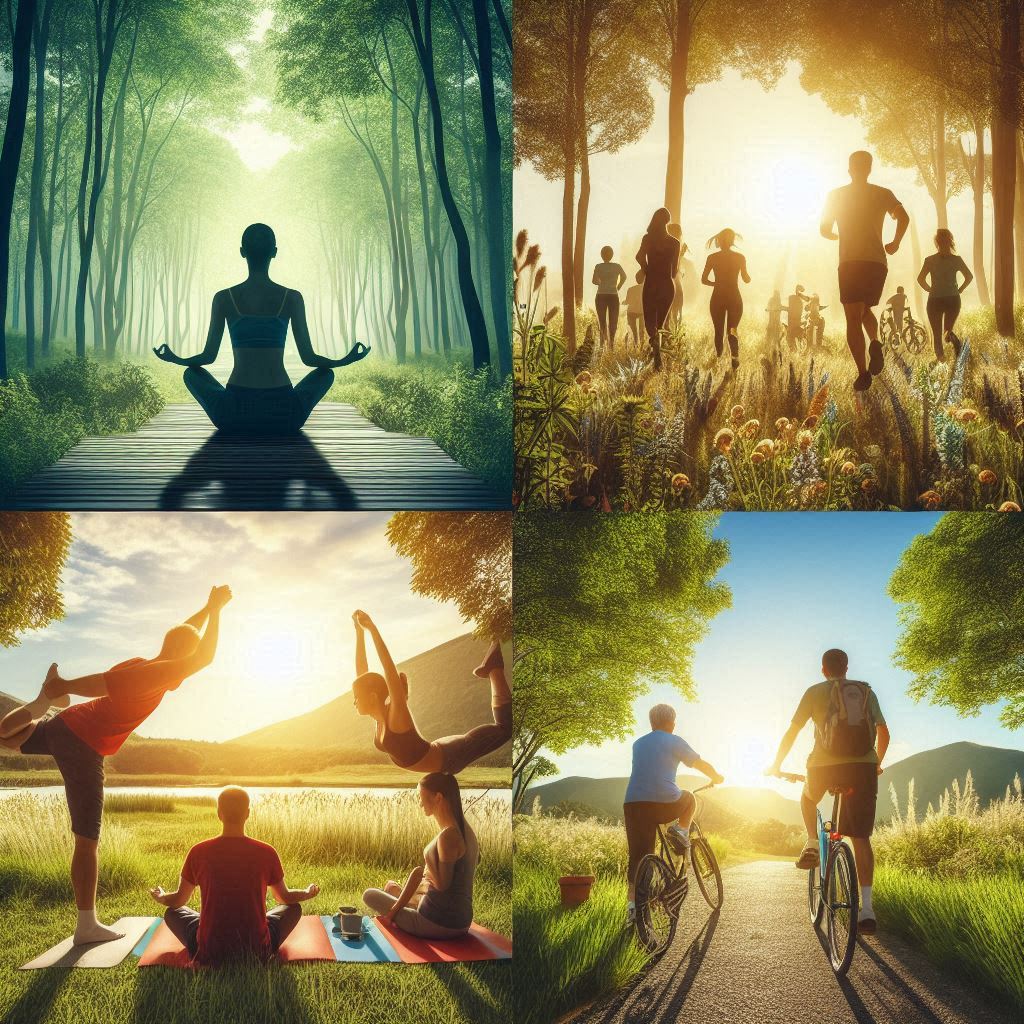
Do you know you can Relief Stress Yourself by Getting Physically Active? Physical Activities That Naturally Reduce Stress
Discover the powerful connection between physical activity and stress reduction. Learn how exercise can help regulate your body’s stress response, improve mood, and boost overall well-being. Explore a variety of activities suitable for different fitness levels, including walking, running, yoga, swimming, and dancing. Discover the science behind stress hormones and how exercise can help counteract their effects.

Do You Know That You Can Manage Stress By Doing Nothing But Eating?
Discover how mindful eating can be a powerful tool for stress management. Learn about the connection between stress and eating habits, and how mindful eating practices can help you regulate your emotions and reduce stress. Explore techniques like paying attention to your senses, eating slowly, and practicing gratitude during meals.

Digital Detox Reducing Stress in a Hyper-connected
World
Discover the transformative power of a digital detox in today’s fast-paced, technology-driven world. Learn about the negative effects of excessive screen time on mental health, sleep, and overall well-being. Explore practical tips for reducing screen time, setting boundaries, and finding healthy alternatives to digital distractions. Gain insights into creating a healthier digital lifestyle and finding balance in a hyper-connected world.
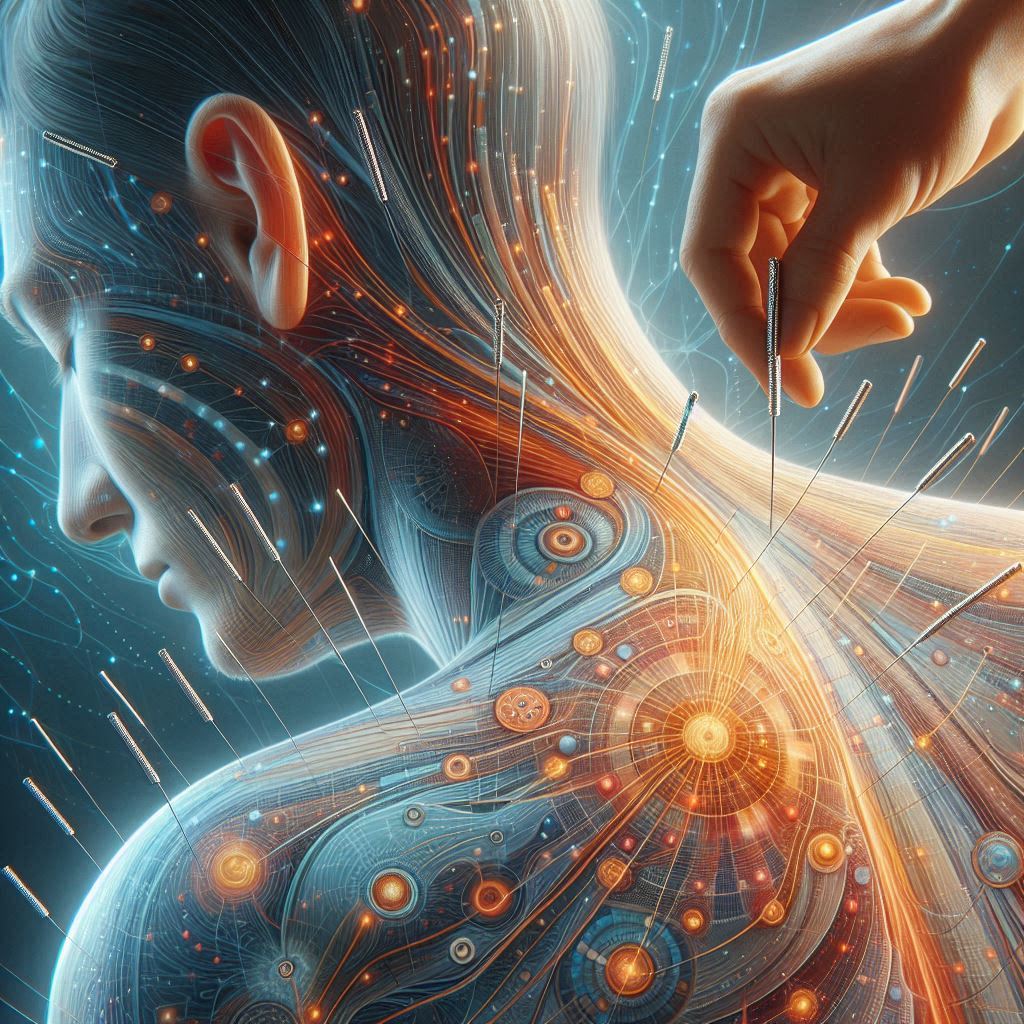
Precision Wellness: How Acupuncture Heals and Restores Balance
Discover the art of precision acupuncture and its ability to restore balance and promote optimal health. Learn about the advanced techniques and specialized needles used in precision acupuncture, which offer targeted and effective treatment for various conditions. Explore the benefits of precision acupuncture for pain management, stress reduction, and overall well-being. Discover how precision acupuncture can address underlying imbalances in the body and promote natural healing.

Scrolling into Stress: How Social Media Fuels Teen Anxiety and Depression
In today’s hyperconnected world, teenagers are spending more time than ever scrolling through social media platforms. While these apps offer opportunities for entertainment, connection, and self-expression, they also come with a darker side. Increasingly, studies are showing a troubling link between excessive social media use and rising levels of anxiety and depression among teens. The constant barrage of curated content, comparison, and online interactions is creating a perfect storm for mental health struggles, leaving many adolescents feeling overwhelmed, isolated, and emotionally drained.

Mind Over Matter: How Cognitive Reframing Transforms Stress into Strength
Cognitive reframing is a mindset-shifting technique that empowers individuals to reinterpret challenges in a way that fuels resilience, confidence, and personal growth. By rethinking the meaning we assign to difficult situations, it transforms pressure into motivation, setbacks into stepping stones, and uncertainty into a catalyst for learning. Grounded in psychological research and backed by neuroscience, it teaches us to break free from limiting narratives, regulate emotional responses, and tap into hidden strengths. Whether applied in high-stakes environments like sports and leadership or in everyday life struggles, reframing offers a mental edge — turning moments of tension into powerful opportunities for transformation.

The Science of Gratitude: How Thankfulness Shields You from Stress
Imagine having a built-in stress shield—one that doesn’t cost a dime, works in minutes, and gets stronger the more you use it. Science says you already do. It’s called gratitude. Far from being a fluffy feel-good idea, gratitude is a physiological reset button, a cognitive reframe, and a social glue all rolled into one. It calms your racing heart, rewires your brain toward solutions instead of threats, and reminds you that even in chaos, you are not alone. In a world that constantly pulls your attention to what’s missing or wrong, thankfulness is the quiet, rebellious act that reclaims your mental space—and might just be your most underrated weapon against stress.

Nature Therapy: Why Spending Time Outdoors Calms the Mind
In a world where screens dominate our gaze and deadlines race our heartbeat, nature therapy offers a pause — a breath — a return. Rooted in ancient healing traditions and confirmed by modern science, it’s the simple yet powerful practice of reconnecting with the outdoors to restore mind and body. From the sacred gardens of ancient Egypt to Japan’s serene forest bathing and the UK’s modern green prescriptions, cultures have long known that nature heals. Today, research proves it: time in green or blue spaces lowers stress, quiets the overthinking mind, lifts mood, strengthens immunity, and protects the heart. Psychological theories reveal why — natural settings gently pull our attention, soothe our senses, and reset our mental balance. This isn’t a luxury; it’s a human need. Whether it’s a mountain hike, hands in garden soil, or five mindful minutes beneath the sky, even the smallest dose of nature can calm the noise, deepen our breath, and remind us that peace still exists — just outside the door.

Laughter as Medicine: Using Humor to Defuse Daily Tension
Laughter is far more than a pleasant reaction to something funny — it is a powerful physiological and psychological tool that can diffuse daily tension, improve mood, strengthen relationships, and even support physical health. Rooted in ancient healing traditions and validated by modern science, laughter activates the brain’s reward pathways, lowers stress hormones, boosts immune function, and fosters social bonds. From workplaces to hospitals, and from family living rooms to cultural healing rituals, humor serves as a natural, side-effect-free way to reframe challenges and build resilience. By consciously inviting more humor into everyday life — through shared jokes, playful interactions, or intentional practices like laughter yoga — we can tap into one of humanity’s most accessible and joyful forms of medicine.

Sleep Your Way to Calm: The Role of Rest in Stress Recovery
Explores how quality sleep serves as a powerful, natural antidote to stress, explaining the biological, psychological, and emotional mechanisms through which rest restores balance in the body and mind. It details how deep and REM sleep regulate cortisol, reset the nervous system, reduce inflammation, and process emotional memories, breaking the vicious cycle of stress-induced insomnia. Practical, evidence-based strategies are offered to optimise sleep—covering light exposure, bedtime routines, relaxation techniques, nutrition, bedroom environment, and cognitive-behavioural tools—to help readers establish consistent, restorative rest patterns. Special considerations for shift workers, parents, travellers, and individuals with chronic stress are included, alongside a 30-day step-by-step plan and a “rescue kit” for bad nights. The core message is that by protecting and improving sleep, you can build resilience, stabilise mood, sharpen thinking, and accelerate stress recovery—one calm night at a time.
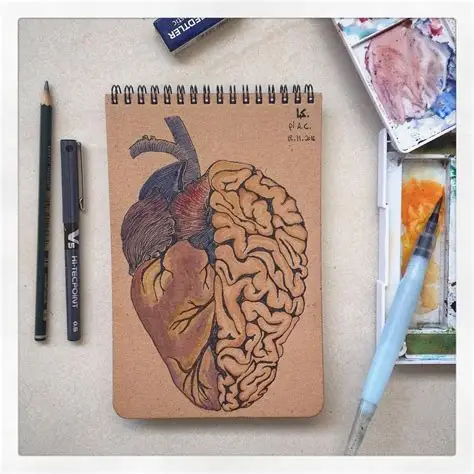
The Power of Journaling: Writing as a Path to Mental Clarity
Journaling is a timeless yet scientifically supported practice that transforms scattered thoughts into structured clarity, helping individuals navigate life with greater focus, self-awareness, and emotional balance. Rooted in ancient traditions from Egyptian papyrus reflections to Marcus Aurelius’ philosophical notes, it remains a powerful mental tool in the modern, fast-paced world. Neuroscience shows that writing down emotions reduces activity in the brain’s stress centers, improves emotional regulation, and strengthens problem-solving skills. Beyond mental clarity, journaling aids in stress reduction, anxiety management, creative thinking, and even physical well-being. Whether practiced through gratitude lists, reflective entries, or free-flowing thoughts, it offers a safe space for emotional release and self-discovery. By committing just a few minutes daily — without judgment or perfectionism — anyone can use journaling as a quiet yet transformative act, turning inner chaos into a coherent narrative and paving the way for personal growth and resilience.
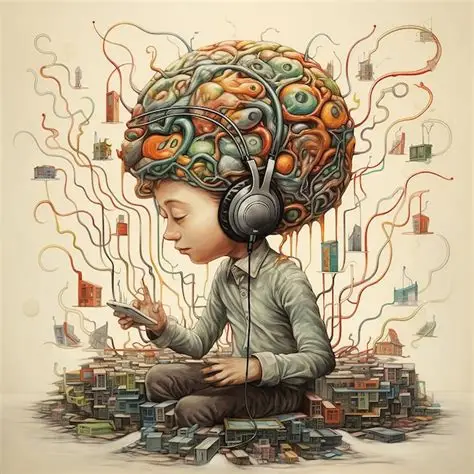
Stress and Sound: How Music Therapy Soothes the Nervous System
Explores how music therapy serves as a powerful, non-invasive tool to calm the nervous system and reduce stress by harnessing the science of sound, rhythm, and melody. It explains how music influences the autonomic nervous system, heart rate, breathing patterns, and emotional regulation, helping to shift the body from a “fight-or-flight” state into a “rest-and-digest” mode. Through both receptive listening and active participation—such as humming, singing, drumming, or guided imagery—music can slow physiological arousal, elevate mood, improve sleep, and foster social connection. The article details practical methods like the iso principle for mood matching, step-by-step playlist building, short daily resets, and group-based interventions, while also addressing safety considerations and ways to personalize music therapy for different age groups, health conditions, and cultural backgrounds. Ultimately, it emphasizes that consistent, intentional use of music can retrain the body and mind to find calm more quickly, making it an accessible and sustainable strategy for managing stress in daily life.

Boundaries and Balance: Saying No Without Guilt
Saying no without guilt is an act of self-respect, not rejection. Boundaries — whether emotional, physical, mental, or time-related — protect well-being, strengthen relationships, and preserve authenticity. Though guilt and people-pleasing make boundary-setting difficult, practical communication tools and resilience allow us to say no with kindness and confidence. Boundaries are not selfish walls but essential guideposts for balance, freedom, and authentic living.
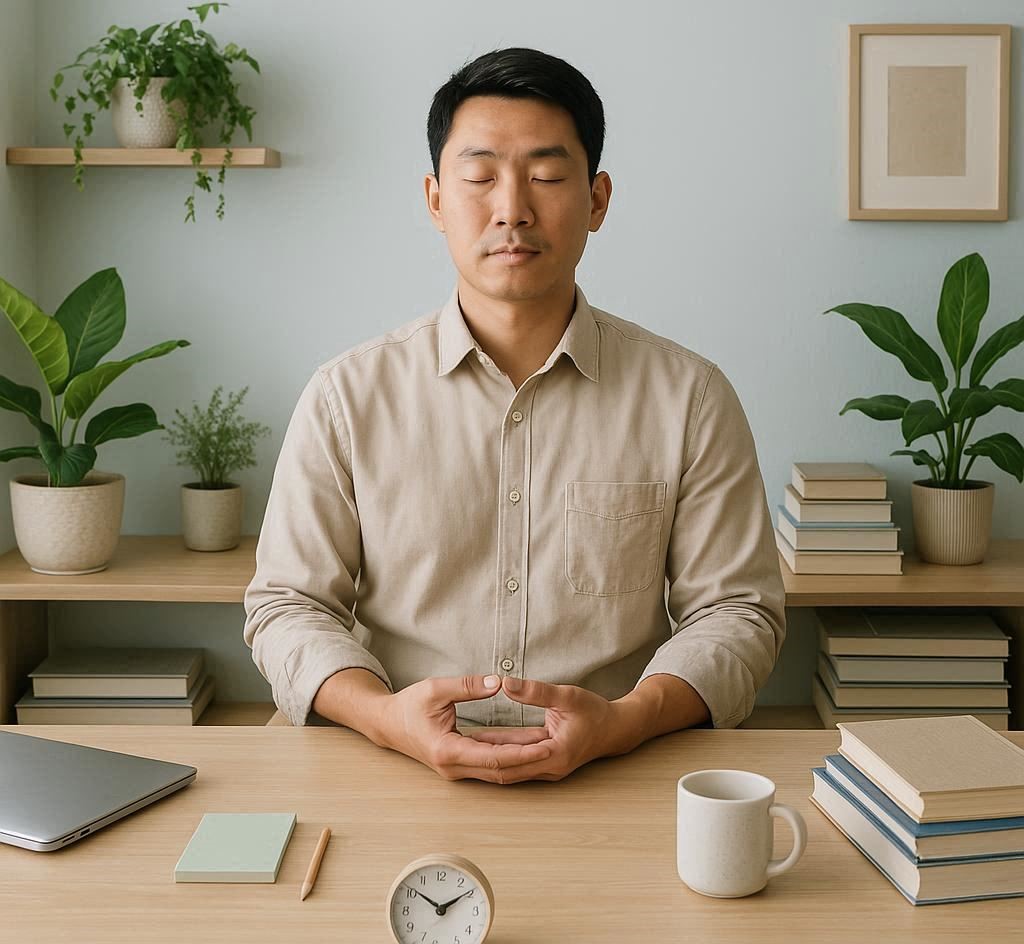
Declutter Your Mind by Decluttering Your Space
Decluttering your space is directly tied to decluttering your mind, as clutter increases stress, mental fatigue, and emotional overwhelm. Research shows messy environments elevate cortisol, impair focus, and disrupt sleep, while organized spaces promote calm, clarity, and healthier choices. Beyond tidying, decluttering addresses emotional baggage, relationships, time management, and digital overload. It encourages intentional living, gratitude, and balance rather than constant accumulation. Practical room-by-room strategies, digital organization, and sustainable habits make decluttering a lifestyle rather than a one-time event. Ultimately, a clear space creates mental freedom, emotional peace, and a foundation for a more meaningful life.
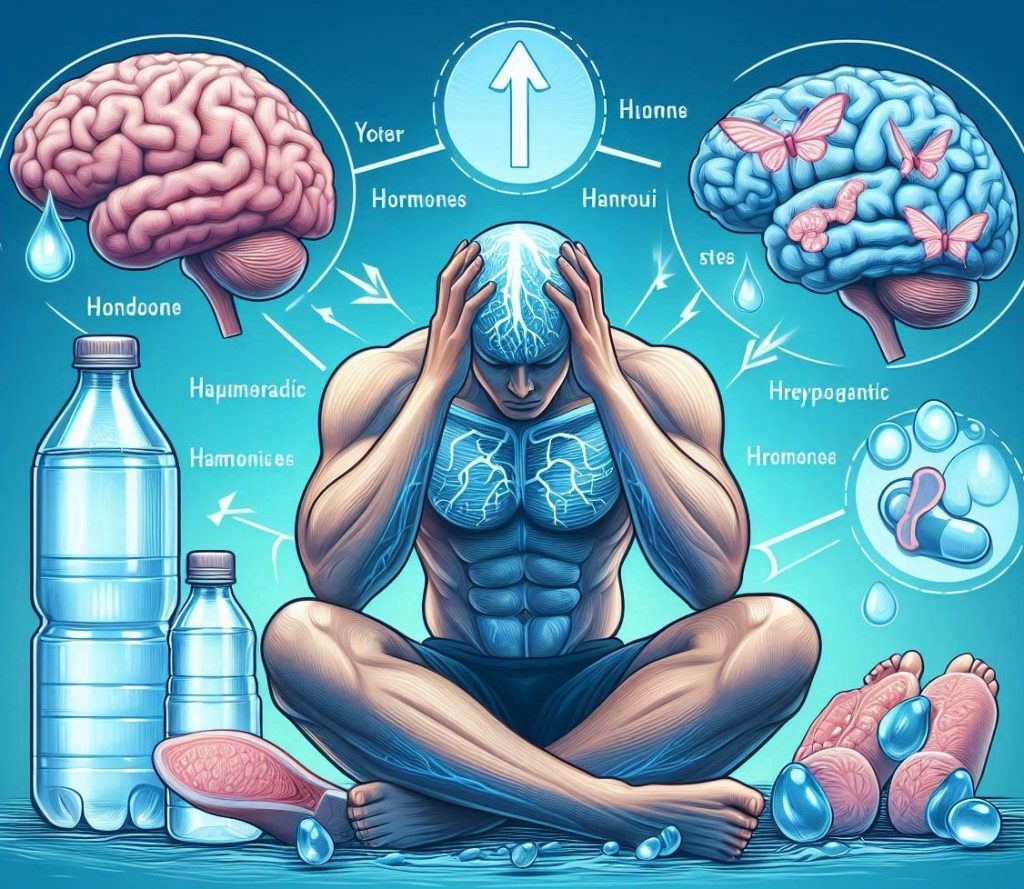
Hydration and Hormones: How Water Intake Impacts Stress Levels
Hydration and stress are deeply connected through hormonal pathways like cortisol and vasopressin.
Even mild dehydration triggers stress responses, raising irritability, fatigue, and mental fog.
Adequate water intake balances hormones, sharpens focus, improves mood, and supports better sleep.
Electrolyte balance further stabilizes blood pressure, appetite, and immune function.
In essence, staying hydrated is a simple yet powerful way to manage stress and boost resilience.
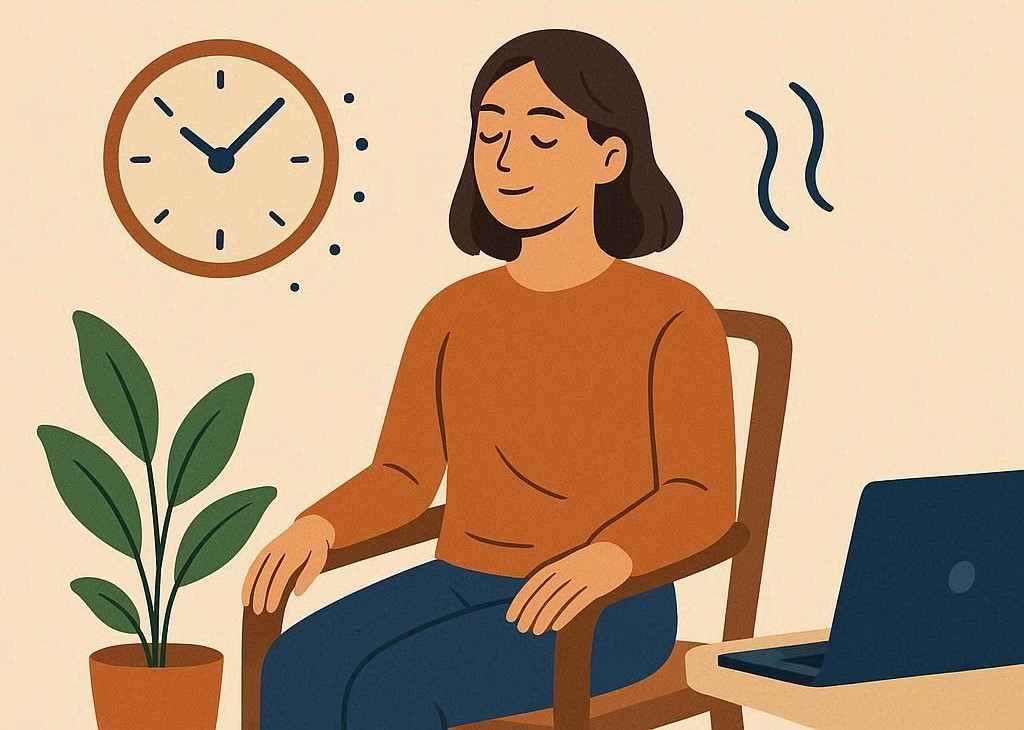
Hydration and Hormones: How Water Intake Impacts Stress Levels
Mindful microbreaks—short, intentional 5-minute pauses—offer powerful benefits for mental clarity, emotional balance, and physical health. Unlike mindless distractions, they actively restore focus, reduce stress, and align with the body’s natural energy rhythms. These pauses prevent burnout, improve creativity, and support well-being in both personal and professional life. Small practices like deep breathing, mindful stretching, or observing nature can re-energize the brain and body. Far from wasting time, mindful microbreaks fuel sustained productivity and resilience. In a world of constant busyness, these tiny pauses can create profound transformation.

The Color Cure: How Surrounding Yourself with Calming Colors Reduces Stress
Surrounding yourself with calming colors like soft blues, greens, and muted neutrals helps reduce stress by lowering arousal and visual noise. Colors influence mood through physiology, learned associations, and environmental cues. Lighting, saturation, and finishes amplify or soften these effects. Small changes in walls, textiles, and digital themes can create restorative spaces. Ultimately, color acts as a subtle yet powerful tool to support calm, focus, and emotional balance.

Pet Therapy: How Animals Help Us Manage Anxiety and Tension
Pet therapy, also known as animal-assisted therapy, harnesses the calming presence of animals to help people manage anxiety and tension. Scientific research shows that interacting with pets lowers stress hormones, increases bonding chemicals like oxytocin, and promotes emotional balance. From hospitals and schools to workplaces, nursing homes, and veterans’ programs, therapy animals have proven effective in reducing stress and fostering connection. Even outside structured therapy, everyday interactions with pets provide companionship, mindfulness, and comfort. While not a substitute for professional treatment, pet therapy is a powerful complementary approach that enhances emotional well-being and resilience.

Financial Calm: Stress Management Through Smarter Money Habits
Pet therapy, also known as animal-assisted therapy, harnesses the calming presence of animals to help people manage anxiety and tension. Scientific research shows that interacting with pets lowers stress hormones, increases bonding chemicals like oxytocin, and promotes emotional balance. From hospitals and schools to workplaces, nursing homes, and veterans’ programs, therapy animals have proven effective in reducing stress and fostering connection. Even outside structured therapy, everyday interactions with pets provide companionship, mindfulness, and comfort. While not a substitute for professional treatment, pet therapy is a powerful complementary approach that enhances emotional well-being and resilience.

The Art of Slow Living: Escaping the Hustle Culture Trap
Slow living is a conscious rejection of the relentless hustle culture, encouraging people to embrace balance, mindfulness, and intentional choices over constant busyness. By focusing on quality rather than speed, it nurtures mental clarity, emotional well-being, and stronger connections with self and others. Instead of measuring life by productivity, slow living promotes presence, gratitude, and fulfillment in simple moments. Ultimately, it empowers individuals to create a more meaningful life, grounded in purpose, calm, and sustainable habits.

Storytelling for the Soul: Using Personal Narratives to Heal Stress
Storytelling—the innate human act of shaping experience into narrative—serves as a potent antidote by transforming chaotic stress into coherent, meaningful stories. This process externalizes overwhelming emotions, reclaims personal agency by reframing events through resilience and growth, and forges meaning by integrating suffering into one’s broader life narrative. Neuroscience-validated through mechanisms like neuroplasticity and emotional regulation, this alchemy metabolizes pain, builds resilience, and weaves an empowered identity from the threads of stress.

Aromatherapy Insights: Scents That Soothe the Overworked Mind
Aromatherapy soothes the overworked mind by leveraging the direct olfactory-limbic pathway, triggering immediate physiological calm and emotional balance. Key essential oils like lavender, bergamot, and chamomile reduce cortisol, ease anxiety, and enhance focus through scientifically validated neurochemical interactions. Practical application via diffusion, inhalation, or topical use offers accessible, daily relief from mental fatigue and stress. For optimal results, prioritize safety through proper dilution and integrate aromatherapy holistically with mindfulness, breathwork, and lifestyle adjustments.

Volunteer Your Worries Away: How Helping Others Helps You
Volunteering serves as a potent, evidence-based antidote to modern anxiety and worry by fundamentally redirecting focus outward, activating a cascade of neurochemical, cognitive, social, and psychological healing mechanisms. When individuals engage in helping others, they trigger a “helper’s high” through dopamine, serotonin, and oxytocin release, which directly counteracts stress hormones and elevates mood. This forced external focus breaks the cycle of rumination and reframes personal worries within a broader context, fostering perspective and gratitude. Simultaneously, volunteering cultivates a sense of purpose, competence, and social connection—fulfilling core human needs for meaning, mastery, and belonging that erode under chronic stress. By addressing the root causes of distress (isolation, helplessness, meaninglessness) rather than just symptoms, volunteering creates a reciprocal healing process: aiding others rebuilds the helper’s own resilience, self-worth, and emotional well-being, making it a uniquely transformative complement to traditional mental health interventions.

The Mind-Gut Connection: How Diet Shapes Emotional Resilience
The gut and brain communicate continuously through the gut-brain axis, with diet acting as a central architect of emotional resilience. A diverse, fiber-rich, plant-forward diet, along with fermented foods, polyphenols, and healthy fats, nourishes beneficial gut microbes, reduces inflammation, supports neurotransmitter production, strengthens the gut barrier, and enhances neuroplasticity. Conversely, processed foods, sugar, and unhealthy fats disrupt this balance, impairing stress response and mood regulation. By consciously feeding the microbiome, we cultivate a resilient mind, enabling calmer stress adaptation, improved emotional balance, and stronger mental well-being from within.

Rituals of Calm: Creating Daily Routines That Keep Stress at Bay
Chronic stress disrupts our physiology and well-being, but intentional daily rituals offer a powerful antidote by activating the body’s relaxation response. These mindful, sensory-rich practices—woven into morning, midday, evening, and bedtime transitions—serve as anchors that regulate the nervous system and build resilience. By transforming routine actions into meaningful moments of presence and self-care, rituals create consistent buffers against chaos and cultivate inner calm. Ultimately, this practice empowers individuals to proactively manage stress, fostering sustained emotional balance and a deeper sense of control over their daily lives.

The Unseen Guardians: How Balance and Proprioception Forge an Injury-Resistant Body
Balance and proprioception are the body’s unconscious neurological systems that sense position and maintain stability. They act as a primary defense against injuries by enabling rapid, reflexive corrections to prevent awkward movements like ankle rolls or dangerous knee positions. Deficits in these systems significantly increase the risk of common injuries from ankle sprains to ACL tears and falls in the elderly. Therefore, targeted training to improve balance and proprioception is a critical, non-negotiable component of injury prevention and lifelong physical resilience.

The Unseen Architecture: A Comprehensive Guide to Ligament Injuries and the Road to Recovery
A ligament injury’s severity, graded I-III, dictates its rehab pathway. Recovery is a phased, criteria-based process focused on reducing inflammation, restoring mobility and strength, and retraining neuromuscular control. Success hinges on consistent, progressive loading and sport-specific drills, not just time. The ultimate goal is a safe return to function, fortified by ongoing injury prevention strategies.

The Foundation of Recovery: How Postural Correction Exercises Build Resilience and Prevent Re-Injury
Re-injury is often caused by uncorrected muscle imbalances from poor posture, not just the original injury itself. A targeted program of stretching tight muscles and strengthening weak ones restores the body’s natural, balanced alignment. Integrating these corrective exercises and daily postural awareness breaks the dysfunctional movement patterns that lead to strain. This proactive approach builds a resilient foundation, drastically reducing the risk of pain and re-injury.

The Silent Epidemic: A Comprehensive Guide to Preventing Overuse Injuries in Young Athletes
The rise of year-round specialization and intense competition has created an epidemic of overuse injuries in young athletes, whose developing growth plates are uniquely vulnerable. Prevention requires a fundamental cultural shift: prioritizing multi-sport participation, enforcing mandatory rest periods, and integrating strength training over winning at all costs. Ultimately, protecting young athletes demands a collaborative effort from parents, coaches, and organizations to value long-term health and enjoyment above short-term competitive success.

Sports-Specific Rehab: The Science and Strategy of Returning Safely to Your Game
Sports-specific rehabilitation is a targeted process that moves beyond pain relief to rebuild the complex movements and mental fortitude required for athletic performance. It systematically bridges the gap between clinical recovery and game readiness through phased, sport-mimicking drills and psychological conditioning. This approach requires a collaborative team and acknowledges that a successful return is measured not by a medical clearance, but by an athlete’s confident and competent return to competition.

The Golden Years Reimagined: Tailoring Rehabilitation for Injured Older Adults
Effective rehabilitation for injured older adults must move beyond treating the isolated injury to embrace a holistic, person-centered model. It requires a deep understanding of age-related physiological changes (sarcopenia, frailty, comorbidities) and their impact on recovery. Success hinges on a multidisciplinary team integrating strength, balance, and functional training, while simultaneously addressing critical psychological factors like fear of falling and depression. The ultimate goal is not just healing the injury, but restoring the individual’s confidence, independence, and overall quality of life.

Defying Gravity: How Anti-Gravity Treadmills Are Revolutionizing Injury Rehabilitation
Anti-gravity treadmills utilize advanced air pressure technology to unweight patients, enabling early, pain-free weight-bearing rehabilitation and gait retraining. By precisely controlling the body weight load, they mitigate pain, reduce swelling, and protect healing tissues while maintaining cardiovascular fitness and muscle strength. This technology is transformative for post-surgical recovery (e.g., ACL, fractures), chronic conditions like osteoarthritis, and neurological rehab, fundamentally altering recovery timelines and improving long-term outcomes. It represents a paradigm shift from passive recovery to active, accelerated, and psychologically empowering rehabilitation.

Joint-Specific Recovery: Hips, Shoulders, and Knees Explained
Effective joint recovery is not a generic process but one that must be precisely tailored to the specific anatomy, biomechanics, and nature of the injury. Successful rehabilitation hinges on restoring each joint’s unique equilibrium between mobility and stability, such as the shoulder’s need for controlled mobility versus the hip’s requirement for powerful stability. This is best achieved through a logical, phased approach that progresses from initial pain management and protection, to restoring range of motion, rebuilding foundational strength, and finally, returning to complex, sport-specific activities. Underpinning this entire process is the critical component of neuromuscular re-education—the conscious reactivation and retraining of specific muscles—which is essential for creating dynamic joint stability and preventing re-injury.

The Long Slog: Overcoming Plateaus in Rehab and Staying Motivated When Progress Slows
Rehab plateaus are an inevitable, biological process, not a personal failure. Overcoming them requires a mindset shift: celebrate the daily process, not just the end result. Strategically break stagnation with your physical therapist through progressive overload and prioritize recovery equally with exercise. True victory lies in the resilience built during the plateau, forging a deeper, more sustainable commitment to your health.

The Art of the Pivot: How to Modify Workouts During Injury Without Losing Progress
Navigating a training injury without losing hard-earned progress requires a disciplined and multifaceted strategy. The foundational and non-negotiable first step is to seek an immediate professional diagnosis to understand the injury and secure a structured rehabilitation plan. With this guidance, you can then intelligently modify your training by identifying and avoiding painful movements, adhering to the critical rule of differentiating between good and bad pain, and implementing strategic alternatives such as adjusting range of motion, tempo, or equipment. This work in the gym must be supported by diligent recovery practices outside of it, primarily through prioritizing high protein intake, quality sleep, and stress management to foster an anti-atrophy, pro-healing environment. Finally, it is essential to embrace the process mentally by reframing rehab as productive training, celebrating small wins, and trusting that this intelligent, adaptable approach will preserve the vast majority of your strength and fitness until you can return to full capacity.

Beyond Ice and Rest: A Deep Dive into Alternative Therapies for Injury Recovery
The paradigm of injury recovery is shifting from the traditional model of passive rest, like RICE, toward a modern approach of active bio-stimulation. This new methodology employs advanced technologies designed to directly influence cellular energy production and inflammation pathways, thereby accelerating the body’s innate healing processes. While modalities such as cryotherapy (inhibition) and laser therapy (activation) operate on seemingly opposite principles, they are united in their ultimate goal: to optimally modulate inflammation and pain, creating an ideal internal environment for repair. Similarly, mechano-therapies like percussion massagers and cupping focus on enhancing circulation and breaking down soft tissue adhesions, which is crucial during the later remodeling phase to restore functional mobility. It is critical to understand that the effectiveness of these interventions is highly individual; they are powerful adjuncts to—not magic replacements for—a comprehensive recovery strategy, and their success is entirely dependent on correct application, precise timing, and professional guidance within a holistic treatment plan.

I’m New to This: Your No-Gym, No-Equipment Cardio Starter Plan
The paradigm of injury recovery is shifting from the traditional model of passive rest, like RICE, toward a modern approach of active bio-stimulation. This new methodology employs advanced technologies designed to directly influence cellular energy production and inflammation pathways, thereby accelerating the body’s innate healing processes. While modalities such as cryotherapy (inhibition) and laser therapy (activation) operate on seemingly opposite principles, they are united in their ultimate goal: to optimally modulate inflammation and pain, creating an ideal internal environment for repair. Similarly, mechano-therapies like percussion massagers and cupping focus on enhancing circulation and breaking down soft tissue adhesions, which is crucial during the later remodeling phase to restore functional mobility. It is critical to understand that the effectiveness of these interventions is highly individual; they are powerful adjuncts to—not magic replacements for—a comprehensive recovery strategy, and their success is entirely dependent on correct application, precise timing, and professional guidance within a holistic treatment plan.

HIIT for Beginners: How to Start Without Burning Out (or Getting Hurt)
The paradigm of injury recovery is shifting from the traditional model of passive rest, like RICE, toward a modern approach of active bio-stimulation. This new methodology employs advanced technologies designed to directly influence cellular energy production and inflammation pathways, thereby accelerating the body’s innate healing processes. While modalities such as cryotherapy (inhibition) and laser therapy (activation) operate on seemingly opposite principles, they are united in their ultimate goal: to optimally modulate inflammation and pain, creating an ideal internal environment for repair. Similarly, mechano-therapies like percussion massagers and cupping focus on enhancing circulation and breaking down soft tissue adhesions, which is crucial during the later remodeling phase to restore functional mobility. It is critical to understand that the effectiveness of these interventions is highly individual; they are powerful adjuncts to—not magic replacements for—a comprehensive recovery strategy, and their success is entirely dependent on correct application, precise timing, and professional guidance within a holistic treatment plan.

Cardio 101: Your Guide to the Different Types & Which is Right For You
For those new to fitness or seeking a low-stress entry point, Low-Intensity Steady-State (LISS) cardio offers a gentle and sustainable approach to build endurance and burn fat. If you’re an all-rounder looking for the most efficient balance of heart health and daily performance, Moderate-Intensity Steady-State (MISS) training provides maximum overall benefits. For the individual short on time but wanting a potent metabolic boost, High-Intensity Interval Training (HIIT) delivers a powerful, calorie-torching session that elevates your metabolism for hours in a fraction of the time. Finally, if you are easily bored and thrive on social energy, Varied Pace and Group Training use engaging, fun workouts and a sense of community to drive consistent results.

5 Common Cardio Machine Mistakes (And How to Fix Them)
Cardio machines offer fantastic fitness benefits, but their effectiveness is often sabotaged by widespread user errors. The most common mistakes include poor posture, relentless steady-state routines, and a blind reliance on the machine’s calorie counter. By correcting your form, embracing intensity variation, and focusing on effort over metrics, you can transform your workouts from mundane to maximally effective.

The 20-Minute Fat Burn: 4 HIIT Workouts You Can Do at Home
High-Intensity Interval Training (HIIT) offers a time-efficient, scientifically-backed method for fat loss and fitness improvement, requiring only 20 minutes per session. By alternating short bursts of maximum effort with brief recovery periods, HIIT triggers EPOC (the “afterburn effect”), enabling the body to burn calories long after the workout ends. The article provides four structured, equipment-free home workouts targeting different goals: foundational strength, cardio, core engagement, and advanced power. Performed 2-4 times weekly with proper recovery, these routines make achieving significant health and body composition results accessible to anyone, regardless of schedule or space constraints.

The Ultimate Treadmill Interval Workout Guide: From Power-Walking to Sprints
Treadmill intervals are the ultimate hack for efficiency, melting fat and boosting fitness in half the time of steady-state cardio. By alternating intense bursts of speed or incline with active recovery, you ignite your metabolism for hours after your workout. This guide provides a safe, scalable progression from beginner power-walks to advanced all-out sprints. Conquer boredom and achieve maximum results by transforming the treadmill into a precision tool for high-intensity achievement.

No Time? No Problem: The 15-Minute Lunch Break HIIT Routine
This 15-minute lunch break HIIT routine is the ultimate solution for the time-poor professional, leveraging the proven efficiency of high-intensity intervals to deliver maximum metabolic and mental benefits in minimal time. It systematically dismantles the barrier of a busy schedule by offering a no-equipment, anywhere workout that boosts energy, burns calories, and sharpens focus for the afternoon ahead. By prioritizing short bursts of intense effort followed by brief recovery, it triggers the powerful “afterburn effect,” ensuring your body continues to work for you long after you’ve returned to your desk. This routine transforms a stolen moment into a transformative act of self-care, proving that consistency and intensity will always triumph over the myth of needing more time.

Master the Moves: Proper Form for 10 Essential HIIT Exercises
The paramount importance of proper form is the foundational crux of mastering HIIT, as the very intensity that makes it effective also makes it inherently risky; executing exercises with precise technique is not merely about optimizing muscle engagement and efficiency, but is the critical non-negotiable factor that prevents acute and chronic injuries, ensuring that the pursuit of fitness goals does not come at the cost of long-term joint health and physical well-being.

The Afterburn Effect Explained: How HIIT Keeps You Burning Calories Long After Your Workout
The “afterburn effect” (Excess Post-Exercise Oxygen Consumption or EPOC) is a elevated metabolic state where the body continues to burn extra calories for hours after exercise has ended to repair itself. High-Intensity Interval Training (HIIT) is the most potent trigger for EPOC because its short, all-out efforts create a massive oxygen debt and significant physiological disruption. Unlike steady-state cardio, where calorie burn largely stops after the workout, the intense metabolic cost of HIIT’s recovery process can boost calorie burn by 6-15% for up to 24 hours. This makes HIIT a vastly more efficient and powerful tool for fat loss and improving metabolic health than longer, moderate workouts.

Is Too Much Cardio Bad For You? Understanding Overtraining and Recovery
While cardio is beneficial, excessive amounts can lead to overtraining syndrome, overwhelming the body’s recovery capacity. This imbalance causes hormonal disruption, immune suppression, and increased injury risk. Recognizing the signs of chronic fatigue and performance decline is crucial. Sustainable health requires balancing exercise with prioritized rest, proper nutrition, and quality sleep.

The ‘No-Jumping’ HIIT Workout: Apartment-Friendly & Joint-Friendly
The “No-Jumping” HIIT workout successfully decouples high intensity from high impact, proving that the metabolic “afterburn” and cardiovascular benefits of HIIT are generated by muscle engagement, speed, and range of motion—not by jumping. By strategically replacing jumps with high-tempo, low-impact movements like speed squats, mountain climbers, and lateral lunges, this method delivers an equally potent workout that is uniquely sustainable. It eliminates the primary barriers of noise for apartment dwellers and joint stress for injured or sensitive individuals, making effective fitness truly accessible, safe, and sustainable for a wider audience without sacrificing any of HIIT’s renowned efficiency.

Cardio & Abs: A 30-Minute Core-Crushing HIIT Circuit
A 30-minute High-Intensity Interval Training (HIIT) circuit designed to simultaneously improve cardiovascular health and build functional core strength. The core premise is that integrating dynamic, full-body cardio movements with targeted abdominal exercises creates a metabolically demanding workout that is far more efficient and effective than training these systems separately. The circuit structure involves performing each exercise for 45 seconds followed by 15 seconds of rest, repeated for three rounds. The key to success lies in maintaining proper form to ensure safety and maximize engagement of the deep core stabilizers, not just the superficial “six-pack” muscles. Ultimately, this workout promises a stronger, more resilient midsection and a healthier heart in a minimal amount of time.

The Playlist Workout: Let the Music Dictate Your HIIT Intervals
Forget the timer. Your music’s natural structure—the calm verses and powerful choruses—is the perfect guide for your HIIT session. Verse = Active Recovery. Chorus = Max Effort. By syncing your movement to these shifts, you transform your workout into an intuitive, engaging experience that reduces perceived effort and boosts enjoyment. Simply curate a playlist with clear dynamic contrasts and let the music tell you when to push and when to rest.

Partner HIIT: 5 Fun Workouts to Do With a Friend
Before diving into the workouts, understanding the core principles of Partner HIIT is essential for success and safety. First, prioritize clear communication about limitations and goals, and maintain it throughout to manage intensity and form. Second, choose a compatible partner with a similar fitness level to ensure mutual motivation and prevent frustration, focusing on teamwork over competition. Finally, never neglect a proper dynamic warm-up to prepare the body and a cool-down to aid recovery, making them non-negotiable parts of your routine.

Seasonal Cardio: The Best Outdoor Workouts for Spring, Summer, Fall, and Winter
The essence of Seasonal Cardio is to adapt your workouts in synergy with nature’s cycles, transforming exercise from a chore into an adventurous and sustainable practice. This approach naturally varies your training intensity throughout the year, preventing plateaus and promoting all-around fitness. By aligning your activity with the seasons, you profoundly enhance your mental well-being and deepen your connection to the environment. Ultimately, it teaches you to listen to your body and embrace each season as a valuable partner in your health journey.

Beyond Running: HIIT vs. LISS: Which Cardio is Actually Better for Fat Loss?
Both HIIT and LISS are effective tools for fat loss, but they work through different mechanisms—HIIT offers time-efficient, high-intensity workouts that increase post-exercise calorie burn, while LISS provides a low-impact, steady approach that taps directly into fat stores during the session. HIIT is ideal for those with limited time and a higher fitness base, whereas LISS suits beginners, those managing injuries, or anyone seeking a sustainable routine. The most effective fat loss strategy combines both, tailored to individual goals, preferences, and recovery capacity—emphasizing consistency, not extremism.

How to Use a Heart Rate Monitor for Smarter Cardio Workouts
Heart rate monitoring transforms subjective exercise into objective, targeted training. By understanding and training within specific heart rate zones—percentages of your maximum heart rate—you can precisely align your workout intensity with your goals. This approach maximizes efficiency, prevents overtraining, ensures safety, and provides measurable progress, moving you beyond generic workouts to a truly personalized fitness strategy.

Busting Cardio Myths: The Truth About ‘The Fat-Burning Zone’ and More
Forget the myths: high-intensity cardio burns more total fat than the “fat-burning zone.” Cardio doesn’t kill muscle with proper diet, nor is fasted cardio superior. Ultimately, nutrition and resistance training are paramount for weight loss, while strategic cardio is a supportive tool for health and fitness.

Beyond the Treadmill: 5 Underrated Cardio Machines and How to Master Them
While running is a valid form of exercise, over-reliance on it limits fitness potential and increases injury risk. This article argues that incorporating underutilized cardio machines—the rowing machine, assault bike, ski erg, Jacobs Ladder, and stepmill—provides superior, holistic benefits. These machines offer unparalleled full-body engagement, high-caloric burn, low-impact options, and unique metabolic challenges that running cannot match. By understanding the mechanics, proper form, and specific workout protocols for each, individuals can create a more balanced, effective, and sustainable cardio regimen that builds athleticism, prevents boredom, and protects the body from repetitive stress injuries.

The Automation Audit: Systemizing Your Life for More Mental Bandwidth
The Automation Audit is a strategic and continuous process designed to reclaim your mental bandwidth—your finite cognitive capacity for focus and high-value decision-making—by systematically identifying and eliminating repetitive, low-value tasks. This practical framework, grounded in the principles of cognitive load theory and behavioral economics, guides you through a cycle of capturing all commitments, analyzing them for their repetitive and rule-based nature, and then designing systems to automate, delegate, or eliminate them. The implementation of these systems—through digital tools, routines, and templates—creates a “trusted” environment that minimizes extraneous cognitive load. The ultimate objective is not robotic efficiency, but the deliberate design of a life that fosters mental spaciousness, enabling deep work, creativity, and meaningful engagement, thereby transforming you from a frantic participant into a calm and intentional designer of your own experience.

The Comprehensive Guide to Energy Management Mapping: Aligning Your Work with Your Mental State for Peak Performance and Sustainable Productivity
The central argument of this guide is that achieving sustainable high performance requires a fundamental shift from managing time to managing energy, as energy—unlike finite time—is a renewable and variable currency that must be strategically cultivated. This process begins with the essential prerequisite of self-awareness, gained through a dedicated Energy Audit to map one’s unique daily rhythms across physical, mental, emotional, and spiritual dimensions. The key to implementation is strategic alignment: intentionally scheduling demanding cognitive work during natural high-energy peaks and reserving low-energy periods for restorative or administrative tasks. Crucially, this system only functions if renewal is treated as non-negotiable, with deliberate rituals for sleep, nutrition, movement, and mindfulness ensuring the energy reservoir is consistently replenished. It is vital to remember that this is a flexible framework for developing a responsive awareness of one’s energy, not a rigid rulebook; self-compassion is required when life inevitably disrupts the plan. Ultimately, Energy Management Mapping is the practice of working in harmony with human nature, providing a path away from chronic busyness and toward a life of intentional, impactful, and sustainable contribution.

The Rule of Three: Architecting a Day of Purpose, Productivity, and Peace
The Rule of Three is a minimalist yet powerful daily planning ritual that counters modern overwhelm and reactivity by prompting you to deliberately select three intentional priorities each morning—one professional, one personal, and one relational—that, once accomplished, will define the day as a success. This practice leverages cognitive principles like chunking and focused attention to reduce decision fatigue, enhance clarity, and serve as a filter for distractions, thereby transforming a sprawling to-do list into a strategic plan for a balanced and fulfilling day. By consistently aligning daily actions with deeper values across all key life domains, the rule acts as a keystone habit that compounds over time, building a life of purpose, productivity, and peace from the foundation of intentionally crafted days.

Digital Fasting: Scheduled Disconnection to Reclaim Focus
Digital Fasting is the intentional practice of scheduled disconnection from digital devices to counteract the cognitive overload and psychological distress caused by perpetual connectivity. By understanding how technology hijacks our brain’s reward systems through variable dopamine loops and incessant context switching, we can employ strategic fasts—from micro-pauses throughout the day to extended weekly resets—to break these addictive cycles. The proven benefits are multifaceted: it restores our capacity for deep focus and creativity, significantly reduces anxiety and FOMO by halting unhealthy social comparison, strengthens real-world relationships by fostering presence, and ultimately allows us to reclaim autonomy over our attention, transforming our relationship with technology from one of passive consumption to one of mindful and intentional use.
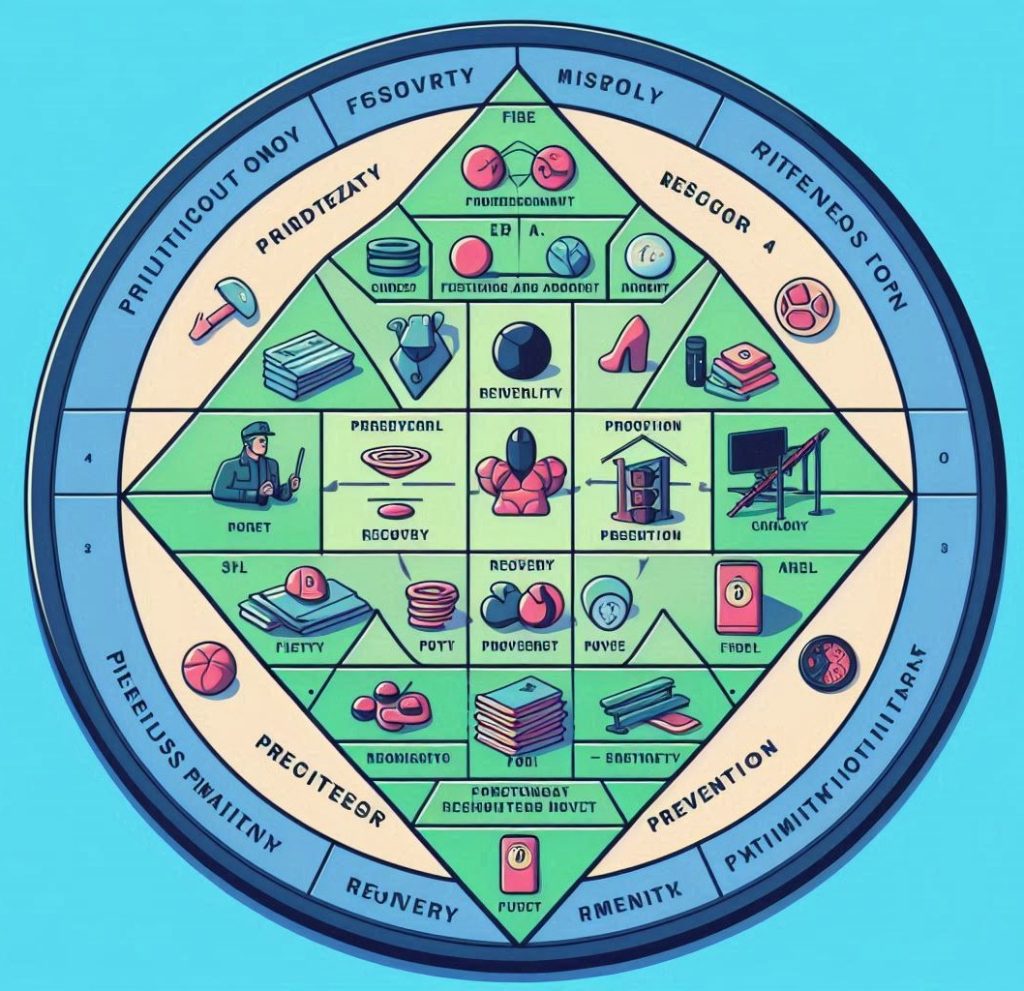
The Eisenhower Matrix for Fitness: Prioritizing Recovery & Prevention
Apply the Eisenhower Matrix to fitness by treating pain and fatigue as “Urgent” and long-term health as “Important.” This prioritizes proactive recovery like sleep and mobility (Quadrant 2) over reactive injury treatment (Quadrant 1). It also eliminates harmful habits like training while sick (Quadrant 3) and minimizes mindless activity (Quadrant 4). This shift enables sustainable, intelligent training that enhances longevity over reactive stress.

The Architect of Your Future: Using Time Blocking to Master Goal Stacking and Realize Your Long-Term Vision
Time blocking is the essential operational system that closes the execution gap between ambitious goal stacks and daily reality by forcing the translation of abstract long-term visions into concrete, scheduled actions, thereby guaranteeing dedicated resource allocation for each priority, minimizing cognitive overload through focused singular attention, and creating a tangible chain of small wins that builds unstoppable momentum toward a cohesive and purpose-driven life.

The “Not-To-Do” List: The Ultimate Prioritization Filter for a Focused and Impactful Life
In a world obsessed with doing more, the ultimate prioritization filter is not a better “To-Do” list, but a strategic “Not-To-Do” list. This powerful tool acts as a psychological and practical framework that forces a shift from efficient task completion to effective impact creation. By preemptively identifying and eliminating mental habits, time-wasting activities, unproductive work patterns, and energy-draining interactions, the “Not-To-Do” list conserves finite willpower, closes anxiety-inducing mental loops, and makes the hidden opportunity costs of distraction starkly visible. It moves beyond mere time management to serve as a filter for one’s identity and values, protecting focus and creating the essential space required for deep work, strategic thinking, and a meaningful life built on intentional choices rather than reactive busyness.

The Fractured Mind: Unmasking the Cognitive Toll of Interruptions and the Power of Task Batching
The fundamental conflict between task batching and context switching hinges on a critical limitation of the human brain: it is incapable of truly focusing on multiple cognitively demanding tasks simultaneously. What we call multitasking is actually rapid toggling between tasks, a process that incurs a “context switching cost” each time we shift gears. This cost manifests as wasted time (as the brain reorients), increased cognitive load, more frequent errors, and mental exhaustion, ultimately fragmenting our attention and degrading the quality of our work. In contrast, task batching—the practice of grouping similar tasks together and dedicating focused blocks of time to them—minimizes these switches, allowing the brain to achieve a state of deep flow, conserve mental energy, and produce higher-quality output in less time, thereby transforming our potential for focused and effective work.

The Symphony of Self: Mastering Your Life Through Chronotype Alignment
Chronotype alignment is the practice of scheduling your life’s activities—sleep, work, meals, and exercise—around your innate biological clock, or chronotype, which is a genetically determined preference for being a morning person (Lion), a night owl (Wolf), or somewhere in between (Bear or Dolphin). Fighting this natural rhythm by conforming to a societal “early bird” schedule leads to social jetlag, which has severe consequences including cognitive impairment, mental health struggles, metabolic disorders, and a weakened immune system; however, by identifying your chronotype and strategically structuring your day to leverage your peak energy and focus times, you can significantly enhance your productivity, overall health, and well-being by working with your biology instead of against it.

The Architect of Your Time: Mastering the Automate, Delegate, Eliminate Framework
The Automate, Delegate, Eliminate framework is a strategic triage system designed to free individuals from the tyranny of low-value tasks by systematically evaluating every obligation through a filter that asks: can this task be automated using technology or systems to run without human intervention, delegated to someone else (a team member, VA, or tool) whose skills and cost are a better match for the work, or eliminated entirely because it provides no real value or alignment with core goals? The ultimate aim is to ruthlessly curate your responsibilities, preserving only the high-impact, cognitively demanding, and personally fulfilling work that truly requires your unique talents, thereby transforming busyness into intentional productivity and freeing up time for strategic thinking, creativity, and life beyond work.
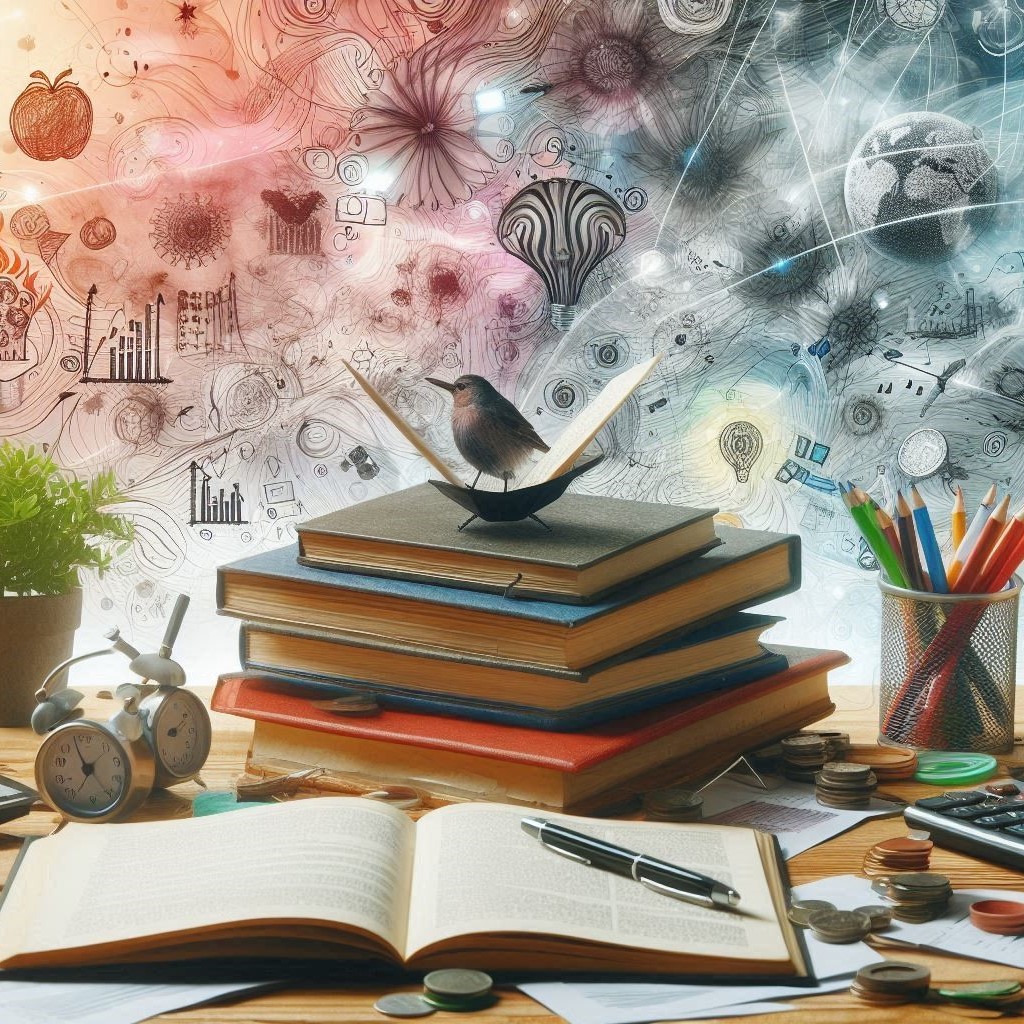
From Chaos to Clarity: How a Weekly Review Can Change Your Life
In our age of relentless input and chronic overwhelm, the Weekly Review is the essential antidote to chaos. This structured ritual involves gathering all open loops, processing tasks, and planning strategically to reclaim mental clarity. By externalizing your commitments into a trusted system, you reduce anxiety, enhance focus, and align daily actions with long-term goals. This practice transforms reactivity into proactive control, creating a foundation for sustained productivity and peace of mind.

Digital Minimalism: The Art of Curating Your Technology for a Focused and Intentional Life
Digital minimalism is a proactive philosophy for technology use that advocates for a radical, intentional simplification of one’s digital life through a rigorous 30-day “declutter” process, where all optional technologies are removed to create space for rediscovering high-value analog activities, followed by a deliberate reintroduction of only those digital tools that unequivocally support one’s core values, all while implementing strict operational practices like disabling notifications and scheduling use to ensure these tools remain servants to focus and well-being, rather than masters of distraction and anxiety.
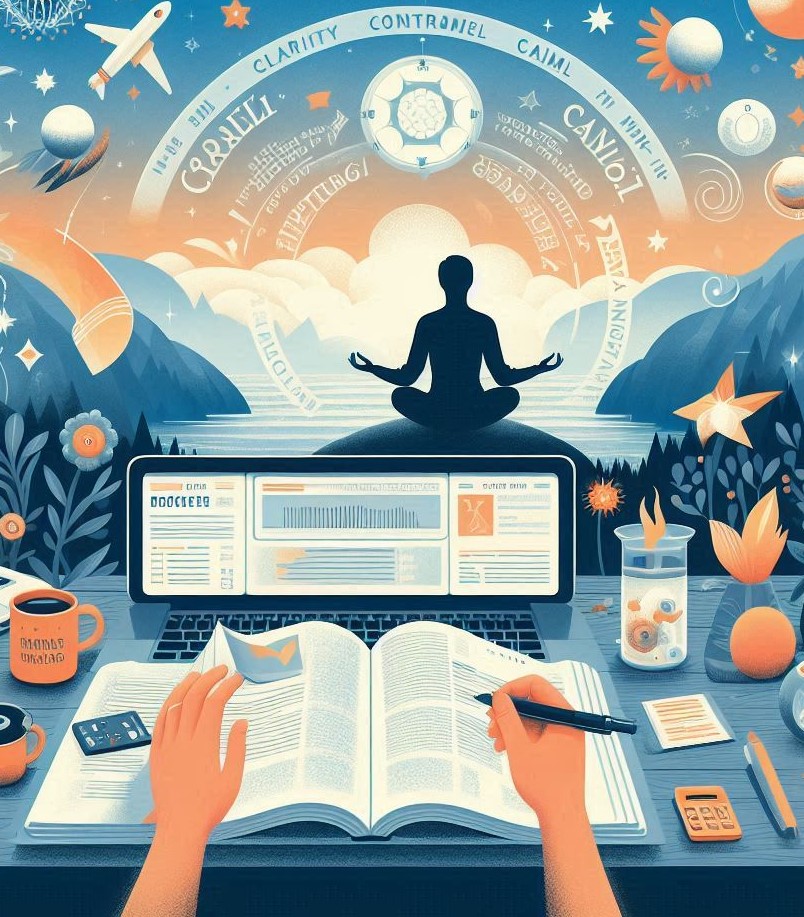
The Weekly Review: A Ritual for Clarity, Control, and Calm in a Chaotic World
The Weekly Review is a dedicated, non-negotiable time block, typically 60-90 minutes, where you systematically step back from the day-to-day grind to capture, clarify, and organize all open loops and commitments in your life. By reviewing the past week’s accomplishments and unfinished tasks, processing all incoming information, refreshing your core systems and lists, and consciously choosing your priorities for the upcoming week, you transform a chaotic reactive existence into a purposeful and proactive one. This ritual creates a closed system for your psyche, reducing anxiety by ensuring nothing is lost or forgotten, and provides the clarity and control needed to align your daily actions with your overarching goals, ultimately restoring a sense of calm and intentionality to your work and life.
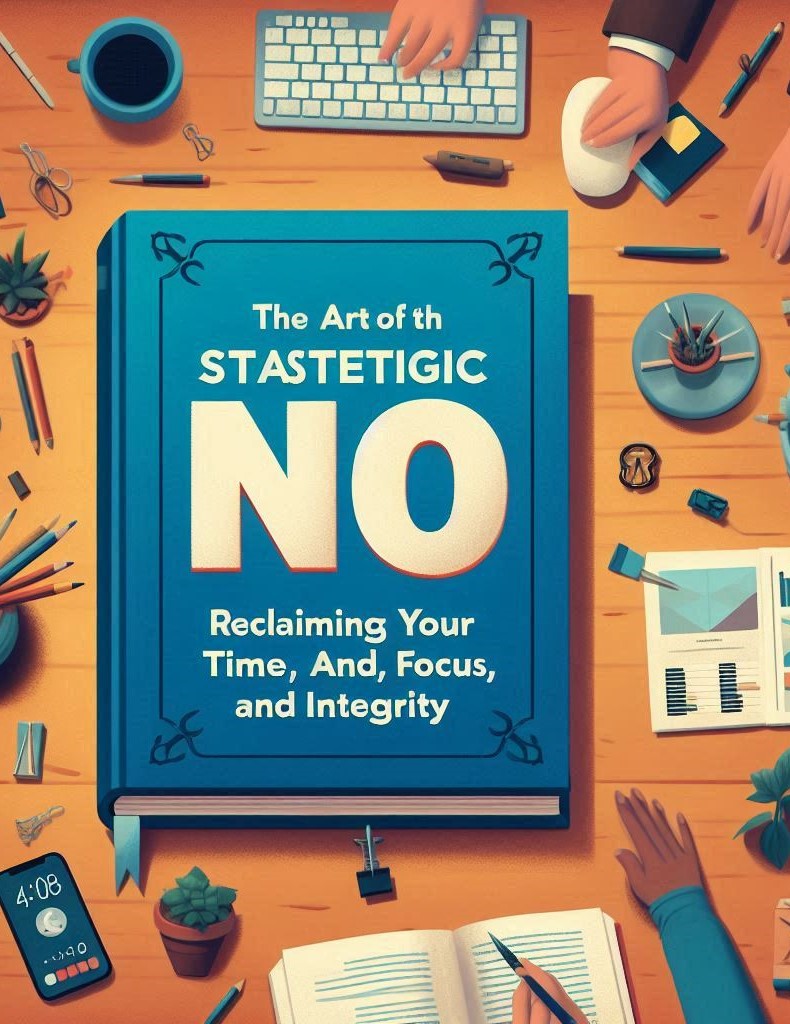
The Art of the Strategic “No”: Reclaiming Your Time, Focus, and Integrity
The art of the strategic “no” is the essential discipline of prioritizing long-term value over short-term appeasement, transforming a often-perceived negative response into a powerful tool for safeguarding one’s focus, time, and integrity. It requires a conscious shift from a reactive mindset of fear—fear of missing out, disappointing others, or being seen as uncooperative—to a proactive stance of clarity, where every commitment is filtered through a lens of personal and professional alignment. By establishing clear boundaries, evaluating the true opportunity cost of each “yes,” and delivering refusals with grace and firmness, individuals and organizations can escape the cycle of burnout and mediocrity, channeling their finite resources exclusively toward the activities that yield the highest impact and foster genuine, sustainable success.

The Transformative Power of the Theme Day: Reclaiming Time, Focus, and Creativity in a Distracted World
The power of the Theme Day lies in its strategic counteraction of the cognitive drain caused by constant task-switching and distraction inherent in modern life. By dedicating entire days to a single type of work or life domain—such as deep focus, communication, or strategy—this approach minimizes attention residue, conserves mental energy, and creates the necessary conditions for achieving a state of flow, thereby dramatically enhancing productivity, fostering deeper creativity, enabling strategic insight, and ultimately transforming our fragmented experience of time into one of intentional and meaningful engagement.

Mastering the Clock: A Comprehensive Time Management System for the “Always-On” Fitness Professional
The 2-Minute Rule and Habit Stacking together form a powerful psychological strategy for overcoming procrastination and building lasting habits by drastically reducing the barrier to entry and embedding new micro-behaviors into existing neural pathways. The crux is that sustainable change is not achieved through grand, sweeping acts of willpower but by mastering the art of the start—making the initial action so simple it cannot be refused and tethering it to an established routine. This approach prioritizes consistency and identity formation over immediate results, using the compounding effect of daily, tiny victories to build unstoppable momentum that naturally expands into significant long-term transformation.

The Architect of Action: How the 2-Minute Rule and Habit Stacking Forge an Unstoppable You
The 2-Minute Rule and Habit Stacking together form a powerful psychological strategy for overcoming procrastination and building lasting habits by drastically reducing the barrier to entry and embedding new micro-behaviors into existing neural pathways. The crux is that sustainable change is not achieved through grand, sweeping acts of willpower but by mastering the art of the start—making the initial action so simple it cannot be refused and tethering it to an established routine. This approach prioritizes consistency and identity formation over immediate results, using the compounding effect of daily, tiny victories to build unstoppable momentum that naturally expands into significant long-term transformation.

The Energy Audit: Manage Your Energy, Not Just Your Time
The central argument is that traditional time management is an incomplete strategy for sustainable high performance because time is a finite resource, whereas personal energy is renewable and expandable. True productivity and well-being are achieved by conducting a continuous “Energy Audit” across four interconnected dimensions: physical (quantity of energy through sleep, nutrition, exercise), emotional (quality of energy through positive emotions and relationships), mental (focus and cognitive capacity), and spiritual (purpose and values). By identifying energy-draining activities and intentionally implementing small, rhythmic rituals for renewal in each dimension, individuals can break the cycle of burnout, enhance their focus and resilience, and build a more engaged and purposeful life.

Tracking Your HIIT Progress: It’s Not Just About the Scale
Tracking your HIIT progress effectively requires moving beyond the misleading and often frustrating metric of body weight alone, as the scale fails to capture the profound physiological adaptations High-Intensity Interval Training induces. True progress is a multi-faceted story best told through a combination of performance metrics (like increased work output, decreased rest times, and improved heart rate recovery), body composition changes (measured via circumference tracking, progress photos, and how clothes fit), and subjective well-being indicators (such as elevated mood, better sleep, and increased daily energy levels). By embracing this holistic dashboard of progress, you foster a more sustainable, positive, and motivated mindset, recognizing that the ultimate victory of HIIT is not just a number on a scale but a comprehensive enhancement of your fitness, health, and overall quality of life.
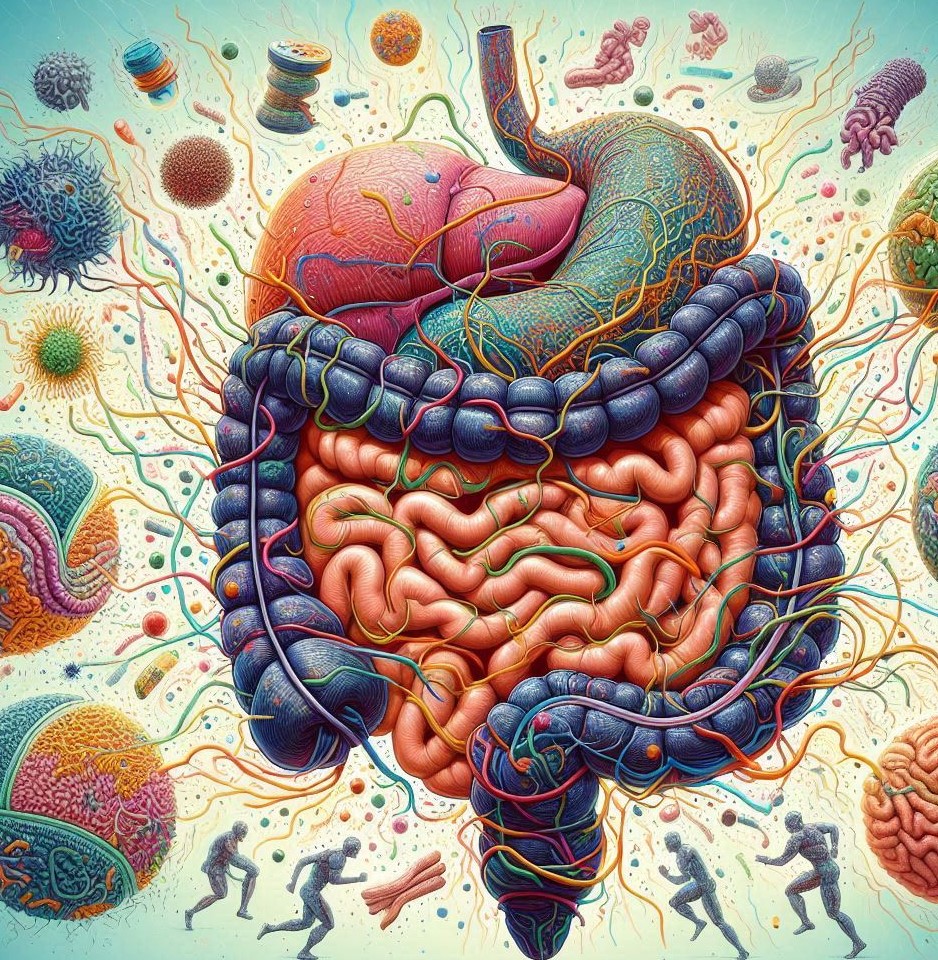
The Mind-Gut Connection: How Intense Exercise Reshapes Your Digestion and Microbial Universe
Intense exercise creates a paradox for the gut: acutely, it causes stress by diverting blood flow away from the digestive system, leading to common issues like cramping and nausea, but chronically, it acts as a powerful positive modulator of the gut microbiome by increasing microbial diversity and boosting beneficial bacteria that produce anti-inflammatory short-chain fatty acids, thereby strengthening the gut barrier and enhancing overall metabolic and immune health long-term.

Beyond the Bike: Mastering the Assault Bike for Ultimate HIIT Conditioning
The Assault Bike is the ultimate HIIT tool due to its unique ability to engage over 70% of the body’s musculature simultaneously, creating an immense and immediate metabolic demand that maximizes caloric expenditure during the workout and significantly amplifies the post-exercise “afterburn” effect (EPOC). Mastering it requires synchronized upper and lower body technique to generate efficient power, and its true potential is unlocked through structured, progressive HIIT protocols—from short Tabata sprints to longer lactate tolerance intervals—that must be integrated into a balanced fitness program with paramount emphasis on recovery to avoid overtraining and achieve transformative results in conditioning, fat loss, and athletic performance.

The Crucible of Effort: Harnessing HIIT for Unstoppable Strength Gains
Strategic HIIT, far from killing gains, can be a powerful tool to support them by enhancing recovery between sets and workouts through improved cardiovascular and metabolic efficiency, promoting superior fat loss while preserving lean mass via EPOC and an improved hormonal environment, and increasing insulin sensitivity for better nutrient partitioning. The key to avoiding the dreaded interference effect lies in strict prioritization of strength training, intelligent separation of sessions ( ideally on different days), choosing low-impact modalities like air bikes and sleds that don’t induce excessive fatigue, and keeping HIIT volume and frequency low (1-2 short sessions per week) while supporting the increased workload with adequate nutrition and sleep.

The 30-Day Cardio Kickstart: A Monthly Plan to Boost Your Endurance
The 30-Day Cardio Kickstart is a progressive overload plan designed to systematically build endurance by strategically alternating between low-intensity steady-state (LISS) cardio for building an aerobic base and high-intensity interval training (HIIT) for improving cardiovascular efficiency and calorie burn. The program begins with a fitness assessment, emphasizes the critical importance of proper warm-ups, cool-downs, and recovery days, and is built on the principle of consistency over intensity, ensuring sustainable improvements in heart health, lung capacity, and metabolic function by gradually increasing duration and intensity over four distinct weekly phases.

Level Up Your Running: HIIT Treadmill Workouts for Every Fitness Level
High-Intensity Interval Training (HIIT) on the treadmill is a supremely efficient and effective training method that alternates short bursts of maximal effort with periods of active recovery, proven to enhance cardiovascular health, significantly boost metabolism via the “afterburn effect” (EPOC) for hours post-workout, and improve speed and endurance in a fraction of the time required by steady-state cardio, making it accessible and adaptable for everyone from absolute beginners to elite athletes through scalable workouts focused on speed, incline, and interval timing.

The 4-Minute Miracle? Deconstructing the Tabata Protocol and the Truth Behind the Hype
High-Intensity Interval Training (HIIT) on the treadmill is a supremely efficient and effective training method that alternates short bursts of maximal effort with periods of active recovery, proven to enhance cardiovascular health, significantly boost metabolism via the “afterburn effect” (EPOC) for hours post-workout, and improve speed and endurance in a fraction of the time required by steady-state cardio, making it accessible and adaptable for everyone from absolute beginners to elite athletes through scalable workouts focused on speed, incline, and interval timing.

The Ultimate Guide to Home Cardio Workouts: Achieve Peak Fitness with Zero Equipment
The ultimate home cardio workout without equipment leverages the principles of high-intensity interval training (HIIT) and progressive overload through bodyweight exercises like burpees, mountain climbers, and squat jumps to efficiently improve cardiovascular health, burn calories, and boost metabolism. By strategically structuring these exercises into timed circuits (e.g., AMRAPs, Tabata) and consistently varying intensity and duration, you can create a sustainable, highly effective fitness routine that requires minimal space, no financial investment, and delivers maximum results for heart health, mental well-being, and overall physical endurance.

Your First HIIT Workout: A Beginner’s Guide to Not Burning Out
The essential principle for a beginner starting HIIT is to prioritize sustainability over intensity by understanding that “high intensity” is a personal, relative measure, not an absolute one. Success hinges on a structured approach: always begin with a proper warm-up, employ a conservative work-to-rest ratio (such as 30 seconds of work followed by 60 seconds of rest), focus exclusively on maintaining perfect form over speed or volume, and commit to a thorough cool-down. Crucially, listen to your body, incorporate ample rest days for recovery, and progressively increase the workout’s difficulty only when you are truly ready, thereby building fitness safely and effectively without triggering burnout or injury.

The 20-Minute Fat Torch: 4 HIIT Workouts You Can Do Anywhere
The four-minute Tabata protocol, as originally studied on elite athletes, is indeed enough to yield significant simultaneous aerobic and anaerobic improvements, but only if performed at the true, soul-crushing intensity of 170% VO2 max—an all-out effort that is unsustainable, risky for non-athletes, and rarely achieved in commercial gyms. For the general population, the 20/10 interval structure is an excellent HIIT tool, but claiming a sub-maximal four-minute session provides the same benefits as the original research is a misrepresentation; instead, the protocol’s true value lies in its revolutionary demonstration that extreme intensity can trump duration, making it a powerful, albeit specialized, component of a broader, periodized training program.
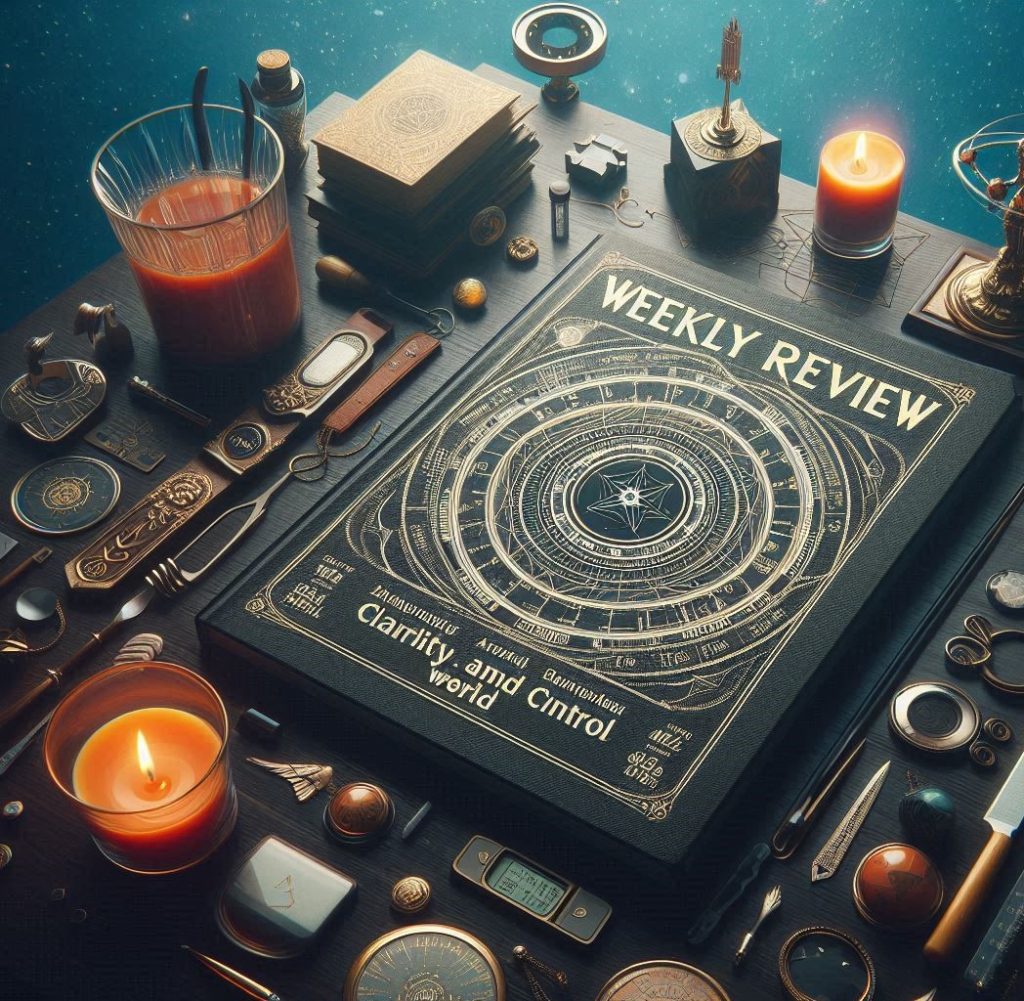
The Weekly Review: A Ritual for Clarity and Control in an Overwhelming World
The four-minute Tabata protocol, as originally studied on elite athletes, is indeed enough to yield significant simultaneous aerobic and anaerobic improvements, but only if performed at the true, soul-crushing intensity of 170% VO2 max—an all-out effort that is unsustainable, risky for non-athletes, and rarely achieved in commercial gyms. For the general population, the 20/10 interval structure is an excellent HIIT tool, but claiming a sub-maximal four-minute session provides the same benefits as the original research is a misrepresentation; instead, the protocol’s true value lies in its revolutionary demonstration that extreme intensity can trump duration, making it a powerful, albeit specialized, component of a broader, periodized training program.

The Science of the Afterburn: How HIIT Keeps You Burning Calories Long After Your Workout
The science is unequivocal: the afterburn effect (EPOC) is a real physiological phenomenon, and High-Intensity Interval Training (HIIT) is its most powerful elicitor, as it creates a substantial oxygen debt that forces the body into hours of elevated post-exercise metabolic activity to repair muscle, restore energy systems, and rebalance hormones, thereby burning extra calories primarily from fat. However, a balanced perspective is crucial; while significant, the caloric yield of EPOC is modest on its own and is not a magic bullet that excuses poor nutrition. Its true power lies not in isolation but in its cumulative effect and its synergy with the chronic metabolic improvements from increased muscle mass and enhanced insulin sensitivity. Therefore, the most effective and sustainable strategy is to wield HIIT as a metabolic turbocharger within a comprehensive regimen that includes strength training, steady-state cardio, and, most critically, a supportive nutrition plan to achieve lasting body composition changes.

HIIT vs. Steady-State Cardio: Which One Is Right For Your Goals?
The choice between HIIT and steady-state cardio is goal-dependent, not a matter of superiority. HIIT is superior for time-efficient fat loss and boosting metabolic rate via the EPOC effect. Steady-state cardio is foundational for building endurance, improving heart health, and aiding recovery. The most effective long-term fitness strategy synergistically combines both to build a resilient aerobic base while maximizing metabolic efficiency.

Cardio 101: Your Guide to the Different Types & Which is Right For You
For those new to fitness or seeking a low-stress entry point, Low-Intensity Steady-State (LISS) cardio offers a gentle and sustainable approach to build endurance and burn fat. If you’re an all-rounder looking for the most efficient balance of heart health and daily performance, Moderate-Intensity Steady-State (MISS) training provides maximum overall benefits. For the individual short on time but wanting a potent metabolic boost, High-Intensity Interval Training (HIIT) delivers a powerful, calorie-torching session that elevates your metabolism for hours in a fraction of the time. Finally, if you are easily bored and thrive on social energy, Varied Pace and Group Training use engaging, fun workouts and a sense of community to drive consistent results.

5 Common Cardio Machine Mistakes (And How to Fix Them)
Cardio machines offer fantastic fitness benefits, but their effectiveness is often sabotaged by widespread user errors. The most common mistakes include poor posture, relentless steady-state routines, and a blind reliance on the machine’s calorie counter. By correcting your form, embracing intensity variation, and focusing on effort over metrics, you can transform your workouts from mundane to maximally effective.

The 20-Minute Fat Burn: 4 HIIT Workouts You Can Do at Home
High-Intensity Interval Training (HIIT) offers a time-efficient, scientifically-backed method for fat loss and fitness improvement, requiring only 20 minutes per session. By alternating short bursts of maximum effort with brief recovery periods, HIIT triggers EPOC (the “afterburn effect”), enabling the body to burn calories long after the workout ends. The article provides four structured, equipment-free home workouts targeting different goals: foundational strength, cardio, core engagement, and advanced power. Performed 2-4 times weekly with proper recovery, these routines make achieving significant health and body composition results accessible to anyone, regardless of schedule or space constraints.

30-Day Cardio Challenge: Boost Your Stamina One Workout at a Time
This 30-day challenge is a dedicated commitment to incorporating daily movement, designed to systematically build your stamina while simultaneously pushing aside doubt and breaking the cycle of inertia. The journey is intentionally structured to begin with gentle, accessible workouts, allowing your body to adapt and your confidence to grow. As the weeks progress, these foundations empower you to take on bolder and more profound efforts, safely increasing intensity and duration. Ultimately, by faithfully seeing this pact through, you will emerge having fulfilled a promise to yourself—a promise that yields a stronger, more energized, and revitalized version of you.

The Ultimate Treadmill Interval Workout Guide: From Power-Walking to Sprints
Treadmill intervals are the ultimate hack for efficiency, melting fat and boosting fitness in half the time of steady-state cardio. By alternating intense bursts of speed or incline with active recovery, you ignite your metabolism for hours after your workout. This guide provides a safe, scalable progression from beginner power-walks to advanced all-out sprints. Conquer boredom and achieve maximum results by transforming the treadmill into a precision tool for high-intensity achievement.

Master the Moves: Proper Form for 10 Essential HIIT Exercises
The paramount importance of proper form is the foundational crux of mastering HIIT, as the very intensity that makes it effective also makes it inherently risky; executing exercises with precise technique is not merely about optimizing muscle engagement and efficiency, but is the critical non-negotiable factor that prevents acute and chronic injuries, ensuring that the pursuit of fitness goals does not come at the cost of long-term joint health and physical well-being.

The Seven Stages of the Nafs and Their Corresponding Stress States: From the Commanding Nafs al-Ammārah to the Content Nafs al-Mutma’innah
The Nafs stages map a soul’s journey from chaos to peace. It begins with the Commanding Self (Ammārah), mired in impulsive, chaotic stress. The awakening Self-Reproaching Self (Lawwāmah) suffers moral stress through guilt. The Inspired Self (Mulhamah) embraces the healthy stress of striving. Culminating in the Contented Self (Mutma’innah), it achieves tranquil homeostasis. Higher stages—Pleased (Rāḍiyyah), Pleasing (Marḍiyyah), and Purified (Ṣāfiyyah)—transcend ego, finding ease in acceptance, purpose, and unitive consciousness. This Islamic framework presents a holistic psychology of transformation from fragmentation to integrated, transcendent well-being.

The Psychology of Repentance (Tawbah): How Seeking Forgiveness Releases Psychological Burdens of Guilt and Shame
Tawbah is Islam’s structured process of repentance, transforming toxic guilt into psychological liberation. It moves through sincere acknowledgment, remorse, and commitment to change, enabling cognitive restructuring and behavioral reform. This practice alleviates moral suffering by replacing self-condemnation with a path to self-reformation and divine forgiveness. It offers an integrative framework that resonates with therapeutic models, providing emotional release and fostering mental well-being through spiritual accountability and restorative action.

Sabr (Patience) as Active Endurance, Not Passive Suffering: The Cognitive and Emotional Mechanics of Prophetic Patience
Sabr is Islam’s dynamic discipline of active endurance, far beyond passive waiting. It merges cognitive reframing—viewing trials as purposeful tests—with emotional regulation through remembrance and supplication. Prophetic example shows it as steadfast engagement: acknowledging pain, then strategically acting with trust in God. This transforms suffering into resilience, meaning, and compassion. Sabr provides a holistic framework for modern well-being, aligning spiritual trust with psychological resilience against adversity.

Muhasabah (Self-Accounting) as a Tool for Preventing Anxiety: Structured Self-Reflection vs. Rumination
Muhasabah is Islam’s structured self-accounting, a proactive antithesis to anxious rumination. It replaces passive, negative dwelling with a disciplined, scheduled audit of thoughts and actions against ethical values. This practice cultivates metacognitive awareness, restores personal agency, and transforms vague worries into concrete, manageable plans. By pivoting from brief retrospection to future-oriented rectification, it prevents distress cycles and anchors self-worth in growth, serving as a powerful cognitive and spiritual buffer against anxiety.

The Science of Serenity: A Neuroscientific Exploration of the Prophetic Prescription for Controlling Anger
The Prophetic method for anger management—changing posture and performing ablution—is a neuroscientifically grounded intervention. Shifting from standing to sitting disrupts the somatic feedback of aggression and activates the calming parasympathetic nervous system. Wudu provides a sensory reset through cool water and focused ritual, forcing prefrontal cortex engagement to override limbic reactivity. Together, they form a cognitive-behavioral protocol that halts the anger cascade, promoting immediate emotional regulation and long-term neuroplastic resilience.

The Concept of Qana’ah (Contentment) in a Consumerist World: Finding Sufficiency to Combat the Stress of Scarcity Mindset
Qana’ah is Islam’s principle of spiritual contentment and sufficiency, directly opposing the consumerist scarcity mindset that fuels modern anxiety. It redefines true wealth as internal satisfaction rather than material accumulation, anchored in trust in divine provision. By practicing gratitude, limiting harmful social comparisons, and mindfully managing desires, it breaks the cycle of perpetual wanting. This cultivates psychological resilience, reduces stress, and fosters enduring peace amidst a culture of relentless consumption.

The Silent Saboteurs: How Self-Admiration and Perfectionism Fuel Burnout and the Fear of Failure
Self-admiration (Ujb) and perfectionism form a toxic synergy that fuels burnout and fear of failure. Mistaking them for virtues, individuals construct a fragile, grandiose identity reliant on flawless performance. This leads to chronic exhaustion, defensive cynicism, and paralyzing avoidance of challenges. True resilience lies in dismantling this cycle through self-compassion, redefining success as “good enough,” and cultivating humility—replacing the pursuit of perfection with the courage of authentic, imperfect humanity.

Tazkiyah an-Nafs (Purification of the Self) and Its Effect on Baseline Anxiety: An Integrative Analysis
Tazkiyah an-Nafs is Islam’s transformative process of purifying the self. Through practices like reflection (tafakkur), self-accountability (muhasabah), and remembrance (dhikr), it systematically reduces baseline anxiety. It restructures cognition with trust in God (tawakkul), grounds identity in a spiritual purpose, and cultivates emotional resilience (sabr). By reorienting attachment from the ephemeral to the eternal, it addresses the existential and cognitive roots of chronic anxiety, guiding the soul to a state of inherent tranquility.

Haya’ (Modesty/Shyness) as a Social Anxiety Regulator: Differentiating Healthy Haya’ from Social Phobia
Haya’ is an Islamic virtue of sacred modesty, praised for moral regulation. Social phobia is a pathological fear causing dysfunction. Their similar shyness manifests from distinct roots: one spiritual and valued, the other psychological and impairing. Conflating them risks misdiagnosis, demanding culturally-informed mental health approaches.

The Spiritual Immune System: Strengthening the Heart’s Defenses Against Psychic Stressors
The Spiritual Immune System is a metaphor for our inner capacity to protect meaning, values, and emotional peace from modern existential threats like digital toxicity, moral injury, and empathic overload. Fortified through mindfulness, compassion, community, values-based action, and digital discernment, it fosters resilience, preventing despair and enabling us to engage with the world’s challenges without being consumed by them.

The Psychological Weight of Major Sins vs. Minor Sins: How Transgression Impacts Mental Peace
The Spiritual Immune System is a metaphor for our inner capacity to protect meaning, values, and emotional peace from modern existential threats like digital toxicity, moral injury, and empathic overload. Fortified through mindfulness, compassion, community, values-based action, and digital discernment, it fosters resilience, preventing despair and enabling us to engage with the world’s challenges without being consumed by them.

The Spiritual Immune System: Strengthening the Heart’s Defenses Against Psychic Stressors
The Spiritual Immune System is a metaphor for our inner capacity to protect meaning, values, and emotional peace from modern existential threats like digital toxicity, moral injury, and empathic overload. Fortified through mindfulness, compassion, community, values-based action, and digital discernment, it fosters resilience, preventing despair and enabling us to engage with the world’s challenges without being consumed by them.